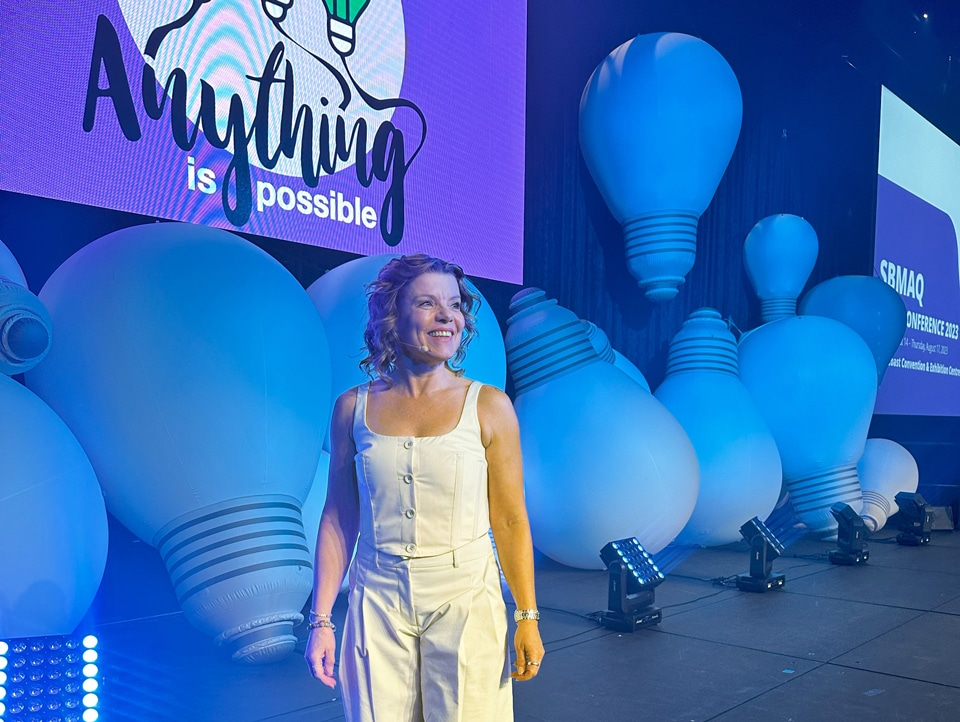Three essential ways to help your team be less fragile

With two out of three workers in Australia reporting that they are experiencing burnout, and that this is impacting their physical mental, emotional and social health, feeling exhausted with the tiny traumas of everyday life and overwhelmed with the bigger challenges that come along is an everyday lived experience for many people.
The Fragility Equation
How fragile we feel reflects how we perceive the disruption, challenge and change in our lives and the resources we believe we have available to respond to it. It’s important to remember that disruption is not always ‘negative’—a new job, a promotion or winning a project are all positive things that can create uncertainty, pressure and challenge. No matter what the disruption, the resources we need to thrive include having the confidence, motivation, and support available to deal with the impact of it. The larger the gap between what we understand is being asked of us by the disruption and the resources we believe we have available, the more fragile we feel.
Closing the Fragility Gaps
There are three gaps that expose our fragility and will only get wider in the future as the workplace continues to become more complex (generative AI anyone?). Closing these gaps can help teams navigate disruption and uncertainty.
1. Safety vs risk
To navigate the challenges and benefit from the opportunities available now and in the future, we need to take intelligent risk and learn forward by adopting an experimentation mindset. The challenge is that our brains are wired to keep us safe, and trying something new can feel risky.
Closing the gap: Invite your team to implement small changes and new actions regularly and assess how they went so that they can learn forward from the experience and put their learning into action. The following questions create a conversation to do this:
- What did we try?
- What we went well?
- Where did we struggle?
- What can we learn from this?
- Where and when can we apply this learning?
By keeping the risk small and adopting an experimentation mindset, we keep our brains feeling safe, which boosts our motivation and confidence in trying something new. And that reduces our fragility.
2. Expectations vs reality
Much of the fragility we create comes from the gap between our expectations—what we believe the world ‘should’ look like—and what we actually experience day to day. This gap becomes a black pit for energy, attention and effort and creates unnecessary drama in teams.
Closing the gap: Epictetus, a prominent Stoic philosopher in the first and second centuries, is understood to have said, ‘The chief task in life is simply this: to identify and separate matters so that I can say clearly to myself which are externals, not under my control, and which have to do with the choice I actually control.’
Help your team to do this by inviting them to identify what about a situation they can’t control; what they can control; and what they can influence, and to what degree – high/medium/low. By understanding what they ‘can’t control’ teams are more clear about what is ‘on the table’ for discussion – what can be controlled/influenced – in meetings and discussions, and plan effective action on that basis.
3. Stability vs disruption
In a volatile, uncertain, complex, ambiguous and accelerating world, traditional approaches to leadership, strategy, and change are not only becoming less and less effective, but also actually creating barriers to success. Most workplaces still operate under a model of leadership premised on the assumption of a system that is mostly stable, and that simply requires data, analysis, strategic vision, and tactical plans to solve problems and to realise opportunities that arise.
Closing the gap: Instead of trying to ‘manage change’ as a response to disruption, harness the collective wisdom of your team by ‘tracking’ – actively looking for the things we want more of and recognising where and why they are occurring – and ‘fanning’ – adding resources and support, and acknowledging and appreciating people’s efforts in order to heighten energy, momentum, and commitment.
By supporting our teams to use their experiences of navigating change, disruption and the challenge that comes with them to expand and develop, we reduce fragility and build resources that support us to thrive. As a result, we are all more able to lead ourselves, our teams, and the systems we live and work in, exceptionally.
Written by Dr. Paige Williams.
Have you read?
Richest Billionaire Investors. Billionaire Winners. Billionaire Losers. Best Business Schools. Best Hotel Schools.
Add CEOWORLD magazine to your Google News feed.
Follow CEOWORLD magazine headlines on: Google News, LinkedIn, Twitter, and Facebook.
Copyright 2024 The CEOWORLD magazine. All rights reserved. This material (and any extract from it) must not be copied, redistributed or placed on any website, without CEOWORLD magazine' prior written consent. For media queries, please contact: info@ceoworld.biz








